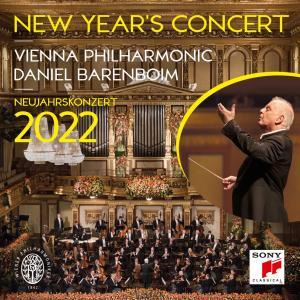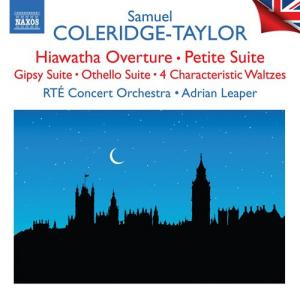 CD Review – Samuel Coleridge-Taylor
CD Review – Samuel Coleridge-Taylor
RTE Concert Orchestra / Adrian Leaper
(British Light Music Vol. 5)
Naxos 8555191
The latest re-issue in the [now Naxos] British Light Music series is the collection, previously available on the Marco Polo label [8.223516, (p) 1995 ], of works by Samuel Coleridge Taylor.
CD Review – Eddie Calvert – The Man With The Golden Trumpet – A Centenary Tribute - his 29 finest
Written by Peter Burt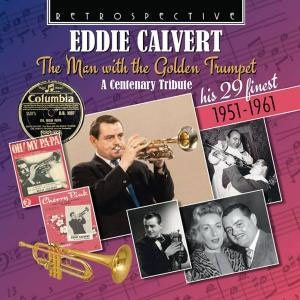 CD Review – Eddie Calvert
CD Review – Eddie Calvert
The Man With The Golden Trumpet
A Centenary Tribute - his 29 finest
Retrospective RTR4392 [78’]
The Retrospective label, with its expert collector and compiler Ray Crick, is a rich repository of our kind of music and I feel sure this release will be of interest to many readers.
CD Review – New Year’s Concert 2022 - Vienna Philharmonic - Daniel Barenboim
Written by Peter BurtAll Through The Night (TRAD)
Analysed by Robert Walton
If you have diligently followed Robert Farnon’s “journey into melody” career, you will know that one of his favourite composers was Hungarian Béla Bartok. Here’s a very interesting quote from him.
All Through The Night (TRAD)
Analysed by Robert Walton
If you have diligently followed Robert Farnon’s “journey into melody” career, you will know that one of his favourite composers was Hungarian Béla Bartok. Here’s a very interesting quote from him.
“Folk melodies are a real model of the highest artistic perfection. To my mind, on a small scale, they are masterpieces, just as much as in the world of larger forms, a fugue by Bach or a Mozart sonata”.
That comment could also have been referring to those famous Farnon miniatures of the 1940s and 50s, many of which I covered in the Farnon Society’s magazine JIM. I used to introduce them as “Thoughts, in depth analysis and a reassessment of the music of the gentle giant of the miniature”.
Just a hint of a folksong assignment and Farnon would have his pencil sharpened ready to apply notes to manuscript at the earliest opportunity. Being an arranger, it was perhaps inevitable that this source of music would appeal to him. The traditional Welsh tune All Through The Night (“Ar Hyd Y Nos”) is one I would thoroughly recommend, so stay with me as we look at two things - the tune and the orchestration. Like many of Farnon’s pieces he gave the world the definitive version.
Simplicity is the key word here because there can’t be many melodies in music which deserve that description. The opening violin strains of this haunting piece almost move listeners to a state of inertia. And that’s just the tune. As soon as it’s dressed up in Robert Farnon’s fancy finery, there really is no word that adequately describes the magic it creates. The contrasting orchestral phrase hits you for six, in a subdued, soft hued sort of way. The soloist returns to end the chorus. After a slight crescendo, the full orchestra comes up a gear or two to repeat one of Wales’s most beautiful melodies with some gorgeous undertunes. We have now been transported into Farnon’s symphonic world. Then things slow right down for an important key change. But it’s a return to the violin for a glorious finish.
In 1954 I decided to arrange All Through The Night for our school choir competition. I wrote it in 4 part harmony and my theory was if it was performed basically straight, we had a good chance of winning. In spite of a note perfect and expressive performance, imagine my surprise and disappointment when we were pipped at the post by a choir singing the German hit of the same year The Happy Wanderer (“Val-de-Ri, Val-de-Ra”) originally sung by the Obenkirchen Children’s Choir. We may have lost, but All Through The Night will still remain one of the great traditional tunes of all time.
Our Head of Music had never heard of Robert Farnon, but after listening to his arrangement of Londonderry Air was hooked. One of our pupils, Weston Williamson had certainly heard of him. In fact he played his own piano arrangement by ear of Yes We Have No Bananas note for note with all the right harmonies! No mean feat!
THE SONGS OF BRITAIN Robert Farnon Orchestra CDLK 4174
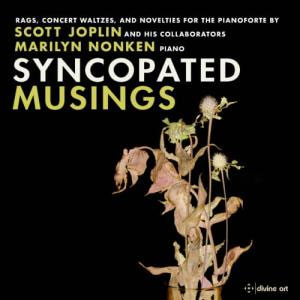 CD Review – Syncopated Musings
CD Review – Syncopated Musings
Marilyn Nonken piano
divine art dda 25220 [67:57]
With this album made at New York University in April 2021 we very much get what it clearly says on the tin. Ragtime developed as a popular musical style at the end of the 19th Century. It has its origins in the saloon bars and dance halls of African-American communities.
CD Review – John Williams And The Boston Pops Orchestra Complete Philips Recordings
Written by Peter Burt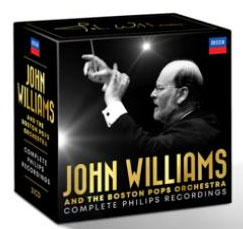 CD Review – John Williams
CD Review – John Williams
And The Boston Pops Orchestra
Complete Philips Recordings
Decca 485 1590 [21 CDs]
This box set is released to celebrate the 90th birthday of the conductor. It consists of the 22 albums recorded by him for Philips during the first ten years of his tenure as the orchestra's principal conductor from 1980 to 1993.
A Wonderful Guy
(Richard Rodgers)
Analysed by Robert Walton
Every industry has its “backroom boys” who know its business inside out, but very often don’t get the credit they deserve. In music, some orchestrators and composers have remained relatively unknown, never getting their name in lights. Warren Barker (1923-2006) born in Oakland, California is good example. Like Nelson Riddle, Barker studied composition under Mario Castelnuevo-Tedesco.
A Wonderful Guy
(Richard Rodgers)
Analysed by Robert Walton
Every industry has its “backroom boys” who know its business inside out, but very often don’t get the credit they deserve. In music, some orchestrators and composers have remained relatively unknown, never getting their name in lights. Warren Barker (1923-2006) born in Oakland, California is good example. Like Nelson Riddle, Barker studied composition under Mario Castelnuevo-Tedesco.
As a child, Barker played piano and trumpet all which helped him in his career in movies, radio and television in the Hollywood area of Los Angeles. Some of the big film companies he was associated with included 20th Century Fox, Columbia and MGM. One of his most memorable arranging jobs was for Oscar-winning “Hello Dolly”. In 1970 Barker was honoured for “My World And Welcome To It” based on James Thurber’s life.
But for the moment let’s concentrate on this classic tune from “South Pacific”. It’s the happiest, joyous and most imaginative instrumental version I’ve ever heard. The song with its constant three beats in a bar does full justice to this intoxicating waltz. In fact there’s quite a lot of Riddle in the score. Like many 2021 television ads, pizzicato strings open the arrangement. From the pool of Rodger’s melodic masterpieces A Wonderful Guy is reborn. Woodwind and normal strings keep up the cheerfulness with lower strings providing a bit of drama at the end of the second phrase.
Middle section time now on the words “I’m as trite and gay as a daisy in May, a cliché coming true” when the violins really come to life as they divide into two strands enhancing the tune. If you think they’re groovy enough, prepare yourself for the next time we hit the bridge! Before that some deliberately “wrong” chords herald a slow down in anticipation of the most moving moment in the whole piece.
Then getting every ounce out of the melody, 16 bars of cutting edge strings immerse themselves as never before in this glorious tune. Somewhere Schoenberg is shadowing. The power of music is amazing. By this time you should be totally involved.
It’s not generally known that Rodgers born in NY City was of German origin, his father a doctor, and the family name was Rogazinsky.
Guild GLCD 5153
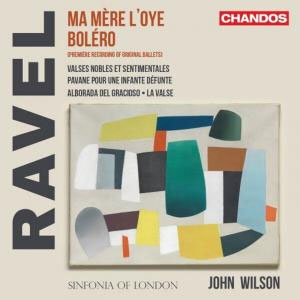 CD Review – Ravel: Orchestral Works
CD Review – Ravel: Orchestral Works
Sinfonia of London / John Wilson
Chandos CHSA 5280 [83:45]
Due to the wretched pandemic, we have had to wait some time for a new album from our friend John Wilson and his celebrated orchestra. Now following their Dutilleux disc it is here, devoted to the music of a much better-known French composer, Joseph Maurice Ravel (1875-1937). It has been said of him that he wrote very little music that was second-rate, be it orchestral, piano, ballet, chamber, opera, or song. He also enjoyed the jazz he heard in the 1920s New Orleans and it influenced some of his later works.
Maurice Ravel placed high importance on melody, telling his pupil Ralph Vaughan Williams that there is "an implied melodic outline in all vital music". He was also a renowned orchestrator, sometimes of other composers' output, with Mussorgsky's Pictures at an Exhibition being the best example.
La Valse (the completion of which was delayed by Ravel's service as an ambulance driver during World War 1) starts quietly but builds up to a sonically brilliant finish over its 11½ minutes. The hauntingly elegiac Pavane Pour une Infante Défunte (for Small Orchestra), written in 1899, established his reputation by achieving world success. The ballet music for Ma Mère L’Oye (Mother Goose), the longest work here (27:58), began life as some pieces for piano duet written for two children. This edition is a première recording. The very Spanish Alborada del Gracioso, and the very Gallic Valses Nobles et Sentimentales, later orchestrated for a ballet, were also originally written for solo piano.
His best-known piece – kept until last – is the exciting Boléro, thanks to the ice-skaters, Jayne Torvill and Christopher Dean, who used it to accompany their gold medal winning perfect-six dance at the 1986 Olympics. We learn from Hugh Macdonald's booklet notes that it was originally entitled 'Fandango'. John has carefully reinstated details of the score which had become carelessly lost so it, too, is a première recording. The story goes that Ravel once remarked about this work that he had produced only one masterpiece and that it contained no music!
Seemingly good for a quotable quote, he once stated, "The only love affair I have ever had was with music". And when Gershwin asked for lessons in composition, Ravel is said to have replied: "It is I who should be asking you how to make so much money by writing music".
Given the pedigree of the conductor and orchestra, those who are familiar with the composer will need no reassurance about adding this latest issue to their collection. Others can sample it on the excellent Chandos website. I notice that Andrew Haveron, the usual SoL leader, only plays on Pavane with Charlie Lovell-Jones filling the role on all the other works.
I believe this to be the longest album I have had the pleasure of reviewing. Let us hope it will be the benchmark for more releases throughout the year.
© Peter Burt 2022

